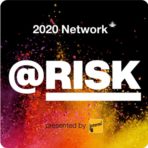
“Return to Tomorrow” is neither the best nor best-known episode of the original Star Trek series. Episode 20 in Season 2 is remarkable in a few ways however. It’s where the track of Spock saying “pure energy” comes from that ends up in Information Society’s 1984 synth-pop hit “What’s on Your Mind.” Remarkably as well both Kirk and Spock die in this episode. (SPOILER: only to be revived!) Most interesting to me, it’s the episode that addresses risk most directly.
The Starship Enterprise’s mission is well known (say it with me and Kirk): “Its five year mission, To explore strange new worlds, To seek out new life, And new civilizations, To boldly go where no man has gone before.” That mission is front and centre in “Return to Tomorrow”, which explores the meaning and value of life and the appropriate level of risk worth taking to achieve your mission. Kirk, Spock and Lt Commander Ann Mulhall are asked to surrender their bodies to an advanced and powerful species.
We find the Enterprise in space past any point where any human being has previously been. They have encountered what appears to be a dead planet but soon receive an invitation from a being of pure energy named Sargon to transport down to the planet. Kirk notifies the Federation that he has accepted the invitation, electing to “risk the potential dangers”, noting the message won’t reach the Federation for another three weeks. They’re flying without a net so to speak. While Kirk would like his First Officer and Science Officer, Spock, to join him, he says he “can’t risk both of us off the ship.” Sargon has unique means of persuasion available to him so Spock ends up being unable to refuse joining the Captain. When the landing party assembles in the transport room, Scotty expresses reservations, worried the party may dematerialize in solid rock. Spock confirms the landing coordinates are for a chamber, brushing the concern aside. To Spock, Scotty’s concerns were illogical. Dr. McCoy is hesitant but reluctantly joins. Sargon prevents the security guards from being beamed down, leaving only Kirk, Spock, Bones and Lt. Cmdr. Ann Mulhall transported to the planet. That seems like a bad sign, no?
There on the planet, the landing party finds luminous spheres containing the lives of three powerful telepathic beings: Sargon, Henoch and Thalassa. They seek to borrow the bodies of Kirk, Spock and Mulhall so that they may temporarily use them to build humanoid robots to permanently house their beings. Their bodies and their planet was destroyed when, in Sargon’s words, their species “dared to think of ourselves as gods.” In other words, to mistakenly believe they could live their lives beyond the reach of risk.
On the Enterprise, the team debates their choice. Lt. Cmdr. Mulhall wants to proceed in the name of “science”. Dr. McCoy is uneasy, describing their power relationship as between “giants” and “insects”. Kirk insists the decision be made on consensus, even though he could easily order it. He instead tries to persuade the others to accept renting their bodies to this powerful and unknown species in a very Willaim T Kirkesque speech. He begins by saying human progress depends on individual people taking risks. He then acknowledges that McCoy’s threat assessment is sound, but points out that the possibilities for good — the potential for knowledge and advancement — are at least as great. With voice raised, Captain Kirk declares: ‘Risk: Risk is our business. That’s what this starship is all about. That’s why we’re aboard her.”
The experiment proceeds. Henoch attempts to hijack the exercise by trying to keep Spock’s body forever. With advanced powers and dedication to honouring his word, Sargon saves the day. He kills Henoch and embraces Thalassa one last time while they still inhabit Kirk’s and Mulhall’s bodies. They then abandon their plans to become robot overlords, electing to return to and remain in their pure energy forms.
Commander Chris Hadfield grew up watching Star Trek and has gone on to spend his entire life @ risk or as he more precisely says on the inaugural episode of the @ risk podcast “being careful with risk.” After speaking with Commander Hadfield, it is abundantly clear that risk is a choice and often a team sport. Commander Hadfield has faced many difficult choices and worked exceptionally hard to be in the position of having to make them. He has worked with many colleagues who he has called friend and has tragically lost some of them along the way.
Commander Hadfield implores us to be clear eyed about the risks you accept, like Spock, as that usually makes you safer and practice helps with that. Like Kirk extolls, Commander Hadfield shares risk is best understood in the context of purpose; otherwise we are just daredevils or paralyzed “little chihuahuas,” pursuing or avoiding risk for the sake of it. It’s also equally important to appreciate and enjoy the journey while in pursuit of your goals, as not all of your goals may be reached. Sometimes there’s risk without any reward except for the joy gained from the effort and Commander Hadfield consistently invests close attention to being present at all times.
We are not gods and risk is what in part makes us human. Risk is therefore unavoidably all of our business, not just the stuff of Starship Captains and International Space Station Commanders. Enjoy my conversation with the extraordinary Col. Chris Hadfield and draw on its many risk lessons relatable to our more earthy daily lives. Listen to the inaugural episode of the @ risk podcast here: playpodca.st/risk
Jodi Butts, host of @Risk


